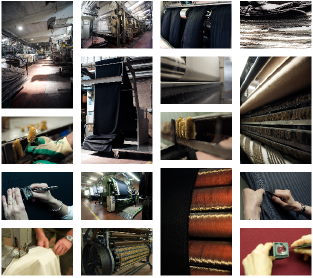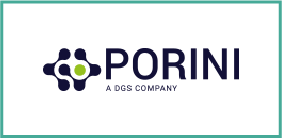The Digital Style experiment is expected to provide the instruments to support the management of Piacenza to find a very rapid and highly optimized approach to the problem of fabric production optimization.
Motivation
Piacenza is an SME manufacturer of fine woolen fabrics, for the high-end luxury market. The production strategy of Piacenza is based on strict and integrated control of production. Piacenza keeps internal those production phases that give an added value perceived by the customer (for ex. Raw material acquisition, finishing, inspection) or production flexibility and cost advantage (weaving, yarn dyeing). Piacenza's competitive strategy is focused on maximum differentiation of the product, in terms of raw material choice, style, and colour.
Each season, more than 2,000 designs are introduced into the market. This key competitive advantage is enforced by design know-how and quick flexibility to customer requests, where Piacenza offers new, customized, and/or exclusive fabrics in close cooperation with fashion stylists. Piacenza’s strategic target is not to increase quantities but the average price, enforcing market barriers based on design, know-how, personalized service, and sharp delivery.
Purpose of the Experiment
The goal of the experiment is to create a digital copy of the production process that shows all the parameters necessary for its elaboration and analysis. This digital model has the goal of optimizing the production planning in the weaving department thus facilitating, taking into consideration all the existing constraints (machines, article compatibility, technical lead-times, customer delivery dates), improving the accuracy and effectiveness of this planning (at the same time reducing the use of intermediate production batches, reducing the stock of semifinished and finished products produced in larger than needed quantities in order to accommodate technical constraints).
The solution aims to use cloud-based software and services (Machine Learning, AI, Advanced Analytics) and with these tools to build optimization algorithms that can provide alternatives and what-if simulations to evaluate the impact of certain choices on the production mix and on the machine's allocation and on the respect or not of the delivery term (dates and quantities).
Technical Impact
The combination of the peculiar production and competitive approaches has led to a very challenging problem of production optimization management, which must satisfy rigid and high demanding service and design requests by clothing fashion customers on one side, and a complex and fully integrated production process on the other. With around 1 million meters produced per year, 200 meters of the average lot and continuous refreshing of the planning due to the overlapping of regular production, exclusive one, prototyping and sampling, the repetition of the same lot with the complexity of the management of Piacenza production planning, requires to be supported and updated with new and innovative approaches to remain up to date to the needs of the market. The above-mentioned production scenarios make the data analysis a huge challenge. A big effort must be placed in gathering a sufficient amount of data for good output without overloading the system with unnecessary data.
Expected Economic Impact
The pilot is expected to directly affect machinery running optimization in fabric weaving by developing mathematical algorithms exploiting all the data shared by the actors of the value chain. Piacenza will provide the complete testbed from yarns for fabric delivery. The algorithm shall provide suggestions about orders grouping and orders size optimization. It is expected a reduction of weaving manufacturing times, an increase of the warp length, and an increased shop-floor crew efficiency due to fewer article changes needed.
Project Partners
Piacenza
is the end-user in the experiment, providing the use case and the data
Porini
is an Independent Software Vendor, who will mainly run the experiment for providing the optimization algorithm.
Domina
is the services provider of Piacenza and is in charge of gathering and providing the relevant dataset.






